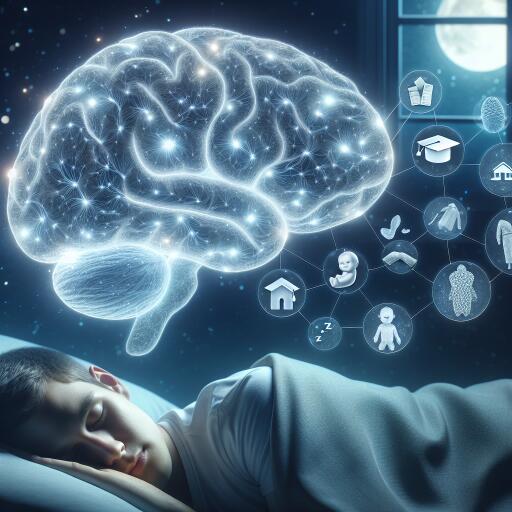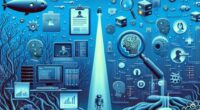Exploring the Frontier of Sleep and Memory: How Brain Cells Foresee the Future
In a groundbreaking study, scientists have taken a significant leap forward in understanding how our brains process and predict future events during sleep. Utilizing advanced machine learning techniques, a research team has shed light on the intricate relationship between neuron activity and spatial awareness, revealing that our brains might be more active in planning future paths than previously thought.
The study, led by neuroscientist Caleb Kemere from Rice University in the United States, alongside his team, embarked on an ambitious journey to decode the neural language of the sleeping brain. By focusing on the activity of neurons in rats navigating a maze, the researchers embarked on an exploration not just of physical space, but of the cognitive spaces that these neurons seem to map out during sleep.
Using a sophisticated machine learning algorithm, the team meticulously analyzed the relationships between neurons and their corresponding locations within the maze. This computational approach enabled them to create a detailed map linking specific neuron activities to precise points within this artificial environment. The mapping process was crucial for understanding how rats, while asleep, were not merely replaying memories of paths previously taken, but were also seemingly projecting themselves into future scenarios and planning potential routes they had never actually explored.
One of the most revolutionary aspects of this study is its contribution to our comprehension of spatial tuning—the process by which specific neuron activities are associated with particular places. The researchers discovered that spatial tuning is not a static phenomenon but a dynamic one that unfolds during sleep. This discovery was made evident when observing the rats navigate the maze post-sleep. It appeared that the neural activities during their slumber stages had a predictive quality over the trajectories the rats would later choose to explore. This finding suggests that during sleep, the brain is actively reorganizing and optimizing its navigational strategies.
“We can validate that these changes really do reflect something that was learned while the animals were asleep,” asserted Kemere, highlighting the significance of these findings. The implication that sleep could involve a process of cognitive mapping, where the brain anticipates future routes and events, opens new avenues for research in memory, learning, and even the understanding of human cognition and dreaming.
This pioneering research not only illuminates the possibilities of predicting events through neural activity during sleep but also showcases the potent applications of machine learning in unraveling the complexities of the brain. As technology and neuroscience continue to intertwine, the future of memory studies and spatial awareness looks both promising and immensely intriguing.
As we stand on the brink of these new discoveries, we are reminded of the profound impact that interdisciplinary research can have on our understanding of the human mind and its capabilities. The journey through the maze, both literally and metaphorically, offers a mesmerizing glimpse into the future of neuroscience, where dreams and reality converge in the exploration of unknown territories.










